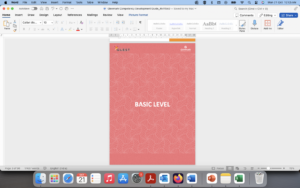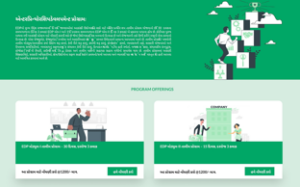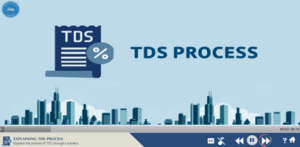Doctors among all professions have it the toughest way. They are the survivors of obstacles and the set of challenges in the real world, which we have discussed in an article. Many healthcare and hospitals have been conducting classroom sessions since August 2016 to train doctors and hospital administrators, among other essential things, how to soothe frayed nerves with minimal or no words at all, the art of listening and the role of empathy in the healing process. However, a digital learning program can be more accessible to professional doctors.
Saarthak Dhawan, who is pursuing MD in the Philippines in reference, said, “A course that emphasises practice, social and clinical skills will provide a sound platform for judging a doctor’s capabilities and result in a dedicated, proficient and skilled doctor.”
Research has identified four factors that affect a patient’s response to the doctor’s treatment and indicates the need for formal training in communication for doctors in factors like eye contact, active listening, interpersonal skills, social touch, appearance and body language.

To give you an indication of the kind of skills needed to be a doctor, we’ve compiled a brief list.
- Good listener to pro-active patients– Listening to a patient enables a true exchange, one that is transparent and non-threatening. Listening is an active process that is possible when the listener’s body language reflects an attitude of genuineness. The fact is that such an attitude is mandatory not only for the patient’s good health but also for the doctor’s emotional well-being.
- Persuasion– Being a doctor means need of a very broad skill set. Persuasion can be considered one of them. It comes into a broader picture for a doctor when a patient rejects the suggested treatment and as the doctors are the most knowledgeable because they tend to know better, their tone should be informative and persuasive rather overpowering or rude. This means managing and overseeing patient treatment plans, as well as having to explain and justify them to their relatives – this can be difficult if they are not cooperative with your ideas. Here intervenes persuasive skill of a doctor.
- Mindfulness- In a doctor’s profession, it is considered that they come across bizarre and terrific situations quite often. SItuations that might make them go blank or situations that might not hand the solutions to them right away in need. A new study published in the ‘Annals of Family Medicine’ shows, “Doctors with mindfulness skills communicate well with patients, and provide better quality care.”
- Communication skills- Communication is a key part of initial diagnosis. Communication is important in every career, but none more so than in medicine. Studies have shown that good communication skills in a doctor improve patient’s compliance and overall satisfaction. There are certain basic principles of practising good communication: Patient listening, empathy, and paying attention to the para-verbal and non-verbal components of the communication are the important ones that are frequently neglected.
- Quick learning abilities- Human bodies are considered to be enormously complex to the point where it’s near impossible for one person to know everything about them, Medical discoveries and technologies move quickly, so even as a highly-qualified professional, you will need to be up to date and aware of the latest treatment developments and trends.
- Emotional Intelligence- Witnessing chronic situations, delivering bad news to the patients and sometimes to their close relatives. It will often be news that they do not want to hear or news that might be changing their lives forever. For such instances the need for emotional maturity and being professional and level-headed to explain to their patients what should be done. Also, the ability to display tact and sensitivity with patients as well as with certain situations – is another key skill. Taking example that you happened to be informing a total stranger that their wife or husband has been in a life-changing accident or revealing to a patient that they have a terminal illness, these difficult conversations require empathy, professionalism and understanding.
We offer customised digital learning program for our clients based on their skills requirement and the need for certain training. We derive Digital learning program and split them into simplified modules. Our training of Emotional Intelligence and mindfulness help our learners imbibe the skills into them and make it as their behavioural aspect. We focus on the content and try to educate our learners through different methodologies such as playing games and watching videos and quizzes.
To get some better insight into our training programs click here. And to have detailed information about the training program developed for TATA memorial hospital click here.






